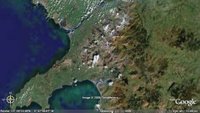According to a recent geographic literacy study by the National Geographic Society and Roper Public Affairs, it would appear that we need to work on more than science and engineering skills. This survey of more than 500 18- to 24-year-olds across the U.S. showed that many young Americans have a limited understanding of our world.
- While outsourcing of jobs to India has been a major U.S. business story, almost half those surveyed (47 percent) cannot find the Indian subcontinent on a map of Asia.
- Only 37% of young Americans can find Iraq on a map—though U.S. troops have been there since 2003.
- 6 in 10 young Americans don't speak a foreign language fluently.
- 20% of young Americans think Sudan is in Asia. (It's the largest country in Africa.)
- 48% of young Americans believe the majority population in India is Muslim. (It's Hindu—by a landslide.)
- Half of young Americans can't find New York on a map.
- More than half significantly over-estimate the population of the United States.
- Two-thirds don’t know that the catastrophic earthquake of October 2005 that killed 70,000 people struck in Pakistan.
How much do you know about the world? Can you name the world's most spoken primary language? The largest consumer of oil? The most heavily fortified border on the planet? The current population of the U.S.? Could you locate the Cambrian Mountains on a map? Twelve-year-old Bonny Jain, from Moline, IL, could, and his knowledge made him the winner of the recent 2006 National Geographic Bee, that aired on Channel 11 (our local Public Television station) last week. Alex Trebek (of Jeopardy fame) was the moderator of this national competition of 55 fifth to eighth grade participants. While it was inspiring to witness the knowledge of these young folks, it would appear they are the "exception" rather than the rule.
Recently National Geographic and leaders from the business, nonprofit and education communities unveiled a public-engagement campaign designed to give U.S. students tools to become more informed global citizens. The goal of the five-year, multimedia campaign — My Wonderful World — is to improve the geographic literacy of young people ages 8-17 by motivating parents and educators to expand geographic offerings in school, at home and in their communities.
The Web site at the heart of the campaign, MyWonderfulWorld.org, provides resources for parents to help kids be more geo-savvy. It includes suggestions for simple, outdoor family activities and ways that parents can work to get more geography into the classroom, links to geography games and online adventures for kids and teens, classroom materials for educators, and ways for young and old to test their global IQs.
Try this 20-question quiz from the folks at National Geographic.
(Oh, and the Cambrian Mountains? Those are the ones that extend across much of Wales, from the Irish Sea to the Bristol Channel.) If you haven't yet discovered (the free) Google Earth http://earth.google.com/, download a copy today and "fly" on over to Wales to have a look.

No comments:
Post a Comment